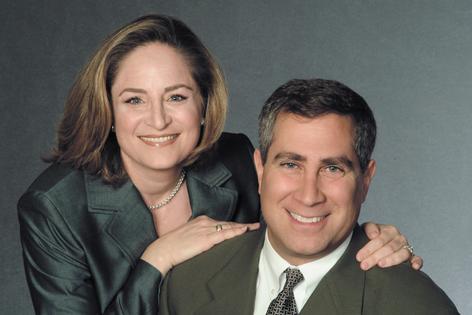Parent weighs pros and cons of sharing assets with daughter
Q: Could you explain the pros and cons of having joint financial accounts with a daughter and owning my home with her as well? My husband has passed away. I have a will and other needed documents.
A: We’re sorry for your loss. We understand how having joint financial accounts and assets feels like everything will be easier after you die. After all, if someone else’s name is on the account, then everything passes to them automatically, right?
While usually true, there are a number of issues, including unexpected tax consequences, that can pop up when you simply add someone’s name to the title of a property or ownership of an account. The good news is there are fairly easy and inexpensive actions you can take that will help assets flow seamlessly to your heirs without adding risk to the equation.
First, it’s great that you have a will. According to a 2024 Caring.com survey, only 32% of Americans have a will. The survey found that 40% of those who don’t have a will say it’s because they don’t have enough assets. What would motivate people to get a will? Forty-three percent say a health crisis would motivate them to start their estate planning.
Estate attorneys like to say that if you don’t have a will, don’t worry. The government has one for you. That’s because every state has laws that govern the disposition of assets and the care of minor children in case someone dies intestate, or without a will. The problem is you may not like what the state decides or how much it costs your loved ones to hire an attorney to handle the probate issues.
We’ve long counseled homeowners not to simply add their children’s name to the house title. To do that will effectively gift your child one-half of the property at your cost basis. For example, if you bought the house 30 years ago for $100,000 but today it’s worth $800,000, if you gift your child one-half of the property, their share of the property will be at your cost basis, or $100,000. If they inherit the property, whether outright or in a trust, the cost basis will be the property’s actual value on the date of death — or the value of the property when you sell it a short time later.
We generally prefer that parents keep their assets in their own name and set up a mechanism for transferring their assets to their loved ones once they die. For example, when it comes to bank and brokerage accounts, many institutions allow you to designate who will get your assets in the event of your death. Your life insurance, pensions, IRA and 401(k) accounts have a mechanism in place to allow you to designate a beneficiary for your these accounts too.
When it comes to real estate, you can file a transfer on death instrument (TOD or TODI) that would allow your home to go to your kids. Or, you can set up a living trust and transfer your home into the trust. Upon your death, your kids would control the trust and would become the owners of the home. A will alone won’t transfer the title of the home to your kids. When you die, your kids would have to take your will to probate court, open up a court case, get the administrator of the estate approved and then transfer ownership of your home to one or both of your kids. Probate is a process that takes a lot of time and money.
The one good thing about keeping ownership and control of your assets is you maintain control. You don’t need to go to your kids for permission to sell or get financing on the home. If you’re the sole owner, you get to decide how and when to sell or what to do with them.
Since you have a will and, we assume, powers of attorney for health care and financial matters, you’ve probably been working with an estate attorney. You and your daughter should meet with the attorney and discuss the best ways to transfer ownership of your house and other assets to her after your death.
========
(Ilyce Glink is the author of “100 Questions Every First-Time Home Buyer Should Ask” (4th Edition). She is also the CEO of Best Money Moves, a financial wellness technology company. Samuel J. Tamkin is a Chicago-based real estate attorney. Contact Ilyce and Sam through her website, ThinkGlink.com.)
©2024 Ilyce R. Glink and Samuel J. Tamkin. Distributed by Tribune Content Agency, LLC.

































Comments